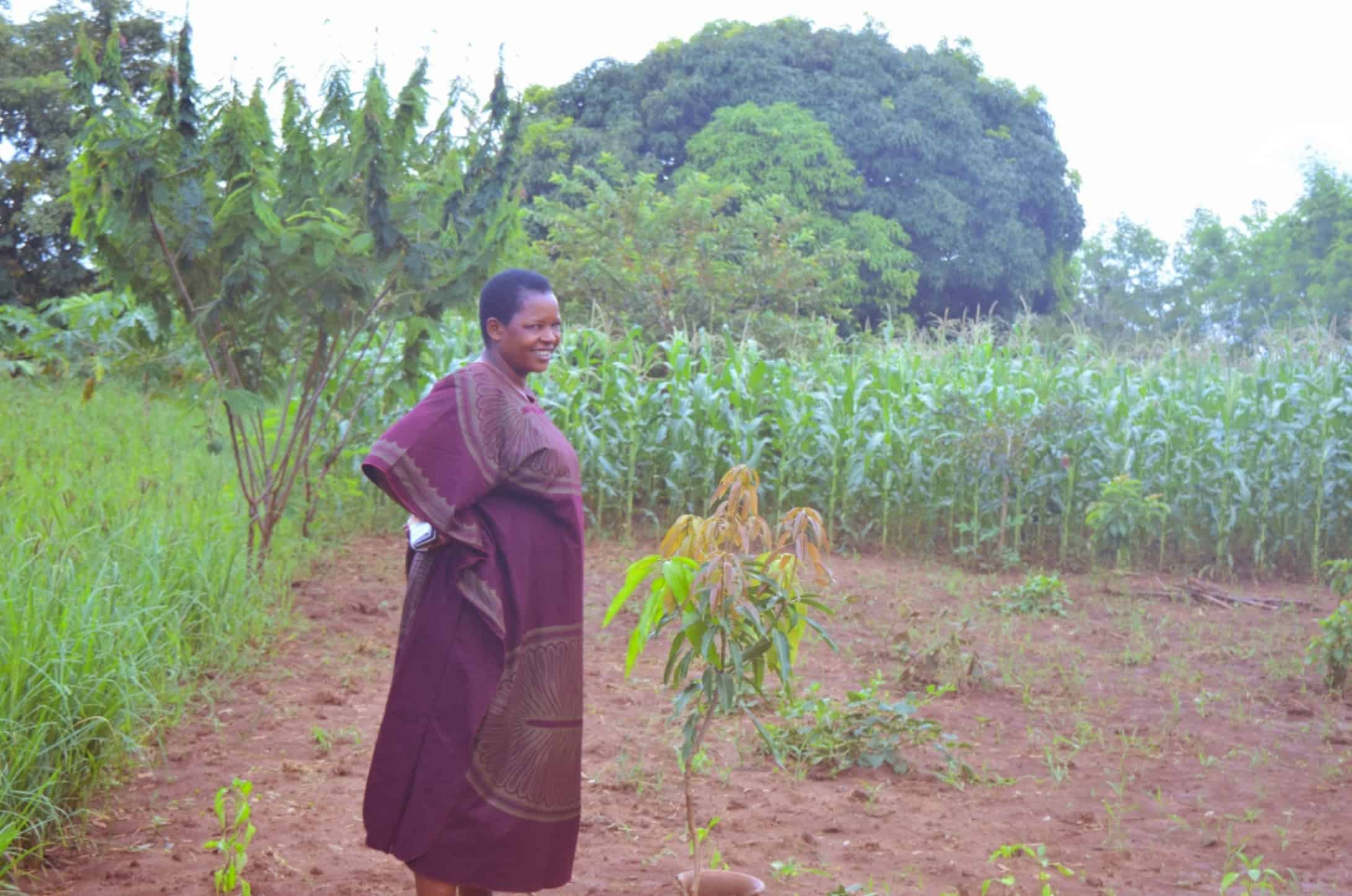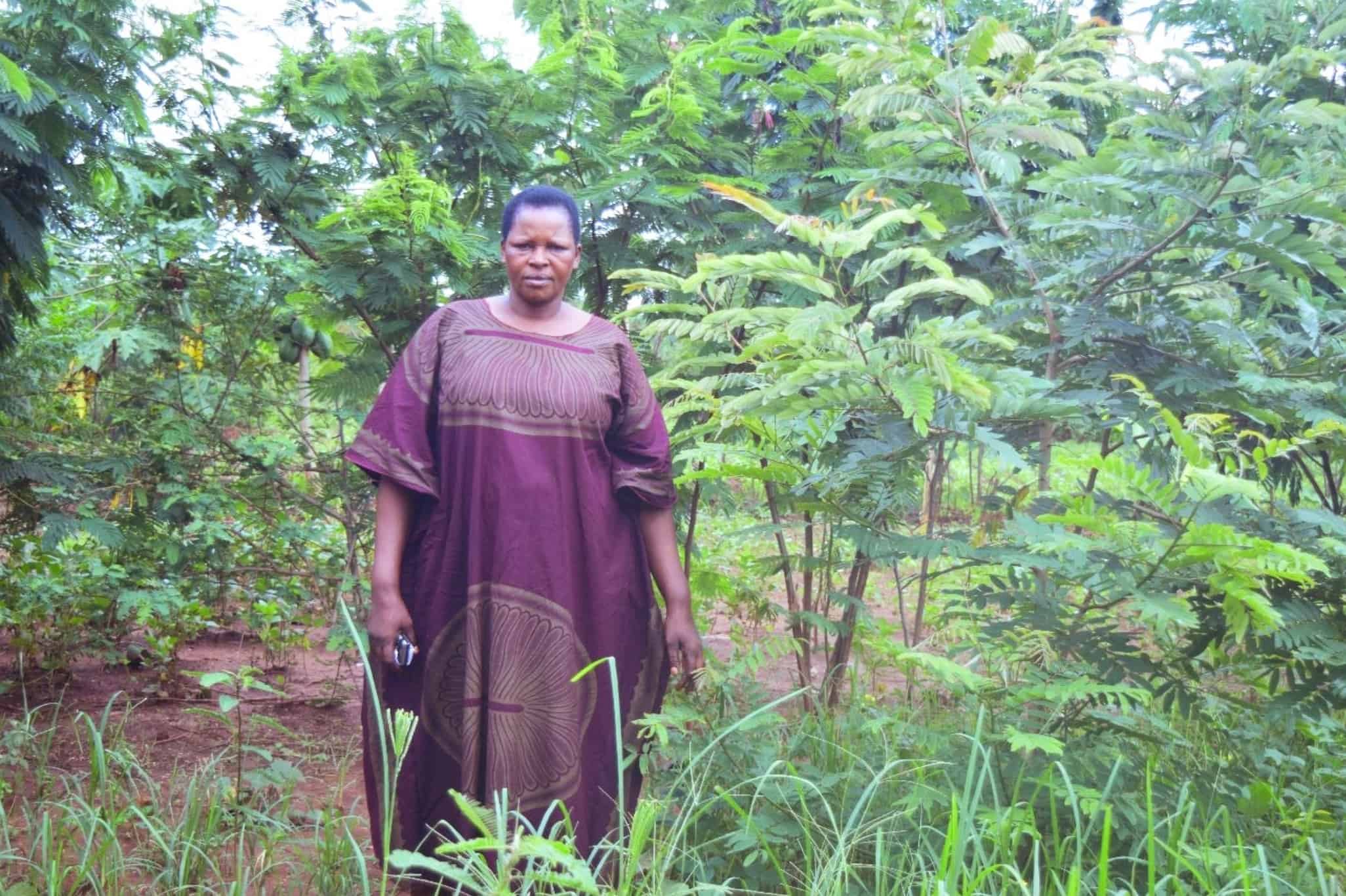Written by Charity Nalwoga – February 18, 2020
Ugandan Farmer Ends Food Scarcity for Her Family and Community
In Aboke, Uganda, a modest restaurant serves locals breakfast, lunch and dinner. Carol Agoa isn’t just the owner and cook, she also supplies all of the food for her restaurant. Down the road from town, Carol’s farm is bursting with life. She brings fresh mangoes, okra, tomatoes, bananas, avocados and more, preparing authentic and fresh meals for her friends and neighbors. The 47-year-old hasn’t always had her restaurant or even the flourishing garden to supply produce. Her life just five years ago was quite different.“The training and instruction I received from TREES technicians has made managing and maintaining my garden very easy. I am forever grateful.”Carol has farmed her one acre of land in Achero B village (in north-central Uganda) for more than 10 years. But, for her and many farmers in the region, prolonged drought and expensive seed and fertilizer costs made farming an unreliable profession. Carol planted and harvested cassava and millet each year with low yields and little return. As one of the primary caregivers for her 12 children and grandchildren, failed crops meant empty stomachs and no payday. But in 2016 she joined Trees for the Future’s Forest Garden program and quickly learned how to change her circumstances for the better. The Forest Garden Program is a simple, replicable and scalable approach with proven success. By planting specific types of fast-growing trees, fruit trees, hardwoods and food crops in a systematic manner over a four year period, Trees for the Future (TREES) is teaching families and communities how to increase production and land productivity.

Carol says that listening and following instructions from TREES technicians has made management and maintenance of her garden very easy, allowing her to harvest constantly from it to maintain her earnings and run her restaurant.
Where Carol once grew only millet and cassava, she now grows pawpaws, millet, pumpkin, mangoes, green peas, okra, yams, green pepper, tomatoes, African eggplants, bananas, soya beans and avocado. She also has timber trees like graveli, melia and albizia. She soon became a Lead Farmer in the program, helping other farmers learn how to implement the Forest Garden Approach.
“Carol has been one of our most successful and disciplined farmers right from the start of this project. She is a source of hope and perseverance in her community,” says Trees for the Future Uganda Country Coordinator Ivan Tumuhimbise. “This community is still feeling the effects and trauma of the Aboke girls’ abduction in 1996. A woman like Carol shows that there is opportunity for women to do great things here.”
Carol says she is forever grateful to TREES for choosing to work in the area to help them build their community and restore what they lost during the insurgency.
Since seeing her Forest Garden come to life, Carol has seen a vast improvement in her family’s health and nutrition. “My husband and I have a healthier home with healthier children because we have successfully added a lot of fruits and vegetables in our diet.”

Carol has also been able to invest her earnings and expand her farm by adding livestock like goats, hens and cows for general rearing at home that she sells at a later stage to a local butcher. Carol has also built a second larger home from her savings from the garden and restaurant which has also given her children work.
Achero B, like most villages in Aboke, faces water challenges. The water sources are far from homes, which means Carol needed a way to bring water home for consumption. With her improved income, she was able to buy a water tank and access groundwater to be used around the home during scarcity.
With all her successes and business ventures, Carol says her favorite place to be is still in the Forest Garden.
“The training and instruction I received from TREES tech
nicians has made managing and maintaining my garden very easy,” she says. “I am forever grateful.”
